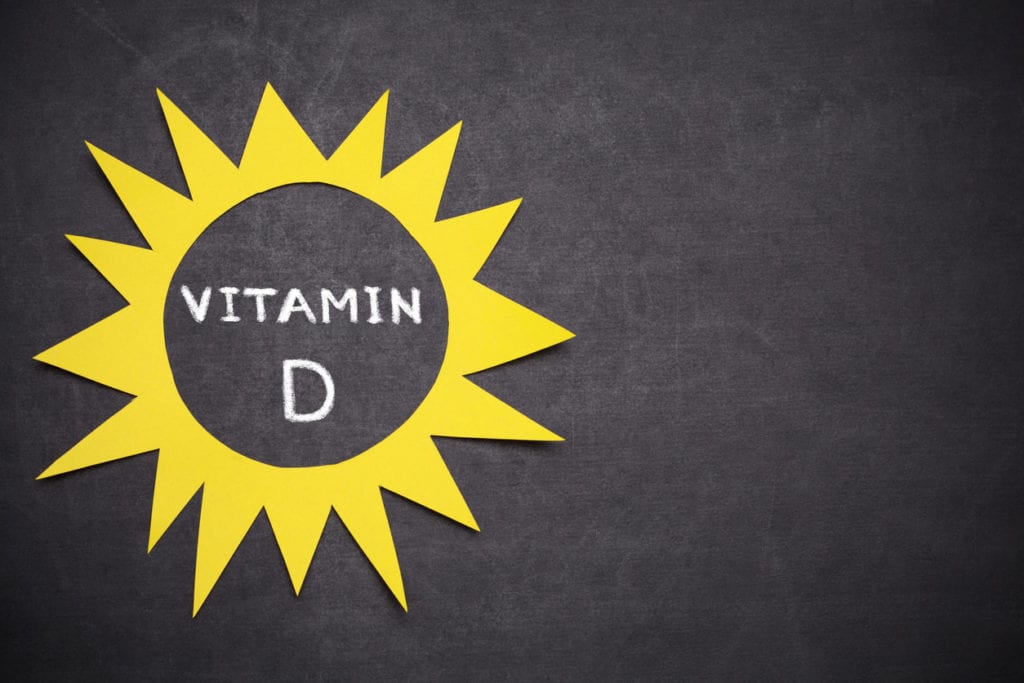
If your bones have been aching lately, you’re feeling down in the dumps, are having sleeping problems, or experiencing acid reflux, you may think these are simply signs of aging. These symptoms on their own may not signal a major problem, but put them together and it could mean that you’re not getting enough vitamin D.
Technically, vitamin D isn’t actually a vitamin – it’s a steroid hormone that your body produces when you are exposed to sunlight or consume certain foods and supplements. Nevertheless, it is vital to your overall health. That’s why you need to be aware of the symptoms of a vitamin D deficiency, so you can take action and maintain a healthy lifestyle.
A Common Condition Often Ignored
According to the Centers for Disease Control and Prevention (CDC), as many as one third of all Americans have a vitamin D deficiency, including up to 50 percent of children between ages 1 and 5 and 70 percent of children between ages 6 and 11.
You can assume that being in the sun and drinking milk would be sufficient to maintain normal levels of vitamin D, which is why a deficiency is often overlooked, but that’s not commonly the case. Choosing to ignore the symptoms of vitamin D deficiency can result in serious consequences. People with low levels of vitamin D are at a greater risk of death from cardiovascular disease and various types of cancer. They are also more likely to gain weight, experience depression, or develop cognitive impairment as they grow older.
On the other hand, producing normal amounts of vitamin D can ward off or treat conditions such as diabetes, hypertension, glucose intolerance, and multiple sclerosis. It also boosts your immune system and fights infections, improves your circulation for a healthier heart, and is essential for building strong, healthy bones.
How do you know for sure if you have a vitamin D deficiency? By getting your blood tested. Before you do, however, be on the lookout for these symptoms:
- Aching bones or frequent fractures
- Moodiness or depression due to a decrease in the hormone serotonin
- Acid reflux or other digestive problems due to a lack of healthy bacterium in your GI tract
- Insomnia, sleep apnea, or another sleeping disorder
- Frequent infections, seasonal flues, colds, and other immune system-related diseases
- Excessive perspiration
- Erectile dysfunction (applies to men only)
Once you’ve been diagnosed with a vitamin D deficiency, your doctor can prescribe the appropriate course of treatment. In the meantime, there are several ways you can help boost your body’s production of vitamin D. One is to increase your sun exposure. Spend at least 15 minutes a day in the sun, exposing at least 40 percent of your skin – not just your face and hands. Keep in mind that while using sunscreen helps prevent skin cancer, it also lowers your ability to produce vitamin D by up to 95 percent. Talk to your doctor about how you can safely get sun exposure.
Another way to boost your vitamin D levels is by consuming more of these foods: egg yolk, beef, fish and seafood, cod liver oil, orange juice, yogurt, and cow or goat milk. However, while there are plenty of dietary options for vitamin D, not everyone is able to absorb the necessary amounts through foods alone. That is why it’s very important to come up with a treatment plan with your doctor to find the best options for getting the vitamin D you need.
Vitamin D Deficiency Treatment in Sarasota and Manatee County, Florida
Intercoastal Medical Group is a multi-specialty practice offering primary care, and much more. With more than 100 doctors in several locations across Sarasota and Manatee County, Florida, we make it easy to find a qualified doctor at a location that’s convenient for you. Intercoastal Endocrinologists Jesus Perez, MD, Wende M. Kozlow, MD, Megan Guerrero, MD and Deborah Majchel-Koss, MD can diagnose and address Vitamin D deficiencies. Drs. Perez and Kozlow are located at the Beneva Professional Center, 943 S. Beneva Road, Suite #210, Sarasota, FL 34232; phone (941) 379-1777. Dr. Guerrero and Majchel-Koss are located at the Intercoastal Lakewood Ranch II medical office building, 11715 Rangeland Parkway, Bradenton, FL 34211; phonr (941)538-0077.

